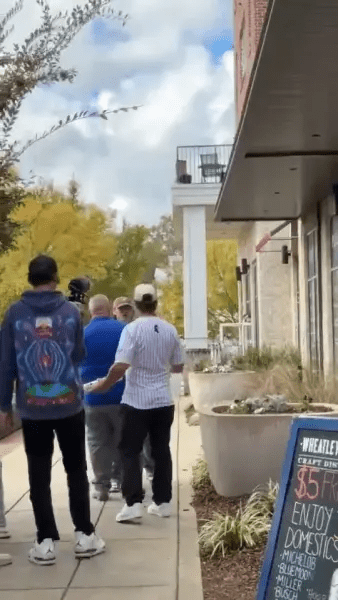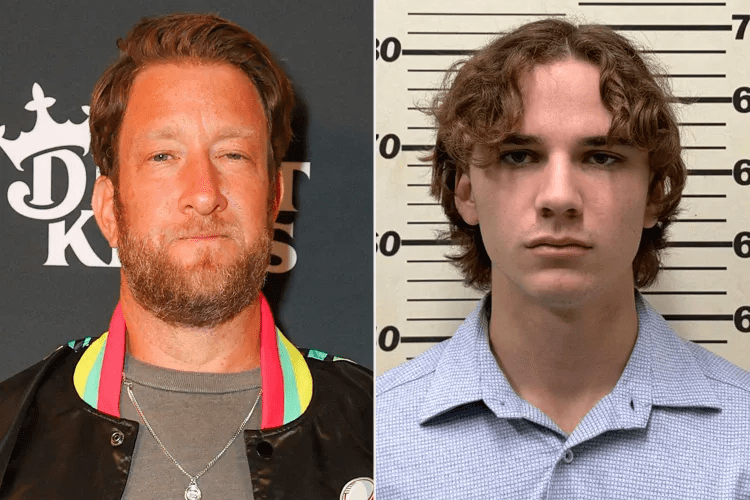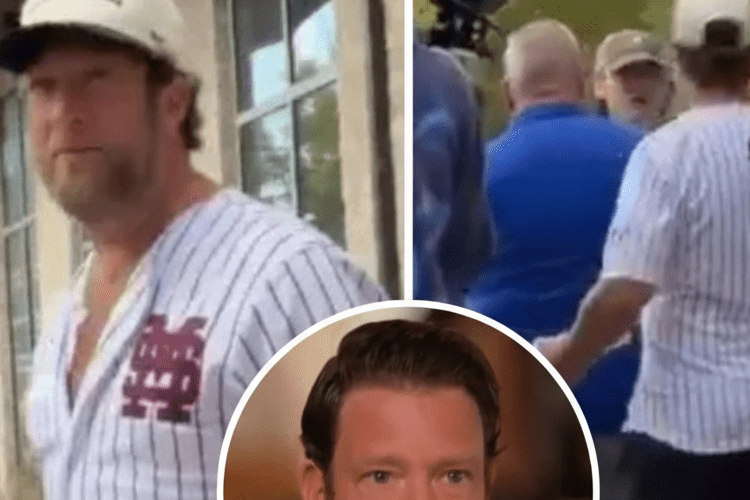Barstool’s Dave Portnoy Says He Faces Antisemitic Attacks ‘Every Day,’ Calling It a ‘Definitive Shift’ in America’s Climate of Hate
Dave Portnoy has always been known for his unfiltered confidence, his unapologetic tone, and his ability to stand tall when controversy circles his name. But this week, the Barstool Sports founder showed a side rarely seen by his millions of followers — one shaped by exhaustion and frustration rather than bravado. In a revealing new interview, Portnoy said that he faces antisemitic attacks “every day,” and that what once felt like background noise has now become an unmistakable “definitive shift” in America’s social climate.
The remarks came during a CBS Sunday Morning segment, where Portnoy, 48, spoke candidly about the growing volume of hate messages he receives online and the disturbing trend he’s witnessed since the last few years of political polarization. “It’s not just trolls anymore,” he said, shaking his head. “It’s become a daily routine — something that I see in comments, emails, replies — everywhere. There’s been a definitive shift in the climate. I’ve been around the internet a long time, and this is different.”

His words landed with weight because Portnoy, once dismissed by critics as a brash media provocateur, has evolved into a uniquely American figure — part entrepreneur, part cultural lightning rod, and part commentator on the fractured digital age he helped shape. As the founder of Barstool Sports, he built an empire on personality, blending sports, comedy, and unfiltered talk long before influencer culture dominated media. But with that reach came scrutiny — and in the past year, Portnoy says the abuse has taken a darker turn.
He described a pattern that feels relentless. “Every day I wake up and there’s something,” he said. “People saying disgusting things about being Jewish. It’s become normalized to a point that should scare everyone.” The entrepreneur stopped short of naming individuals or groups, but his tone reflected a mix of sadness and defiance. “You can tell when something changes in the air,” he added. “There’s an undercurrent that didn’t use to exist like this. It’s meaner. It’s uglier. It’s real hate now — not jokes, not internet pranks. Hate.”
For Portnoy, who has never shied from confrontation, this shift marks more than personal discomfort — it signals a broader cultural descent. His comments align with data from organizations like the Anti-Defamation League, which reported record highs in antisemitic incidents across the United States in both 2024 and early 2025. The surge, they note, has been amplified by social-media platforms where inflammatory rhetoric spreads faster than it can be moderated. “I see it firsthand,” Portnoy said. “You’d be shocked how casual people have gotten about it — like there’s no line anymore.”

This isn’t the first time Portnoy has spoken out about online hostility. Over the years, he’s faced countless waves of backlash — over business decisions, political commentary, or viral feuds. Yet this moment feels different because of how personal it has become. “When it’s tied to who you are — not what you say or do — it hits differently,” he told CBS. “It’s not about disagreeing with Barstool or me as a person. It’s pure hate.”
Barstool Sports itself, now a multi-platform powerhouse with millions of followers, has been through its own public reinvention. What began in the early 2000s as a free-spirited sports blog now functions as a media network with reach across podcasts, betting platforms, and live events. Portnoy’s blunt style and refusal to bow to traditional media rules made him a folk hero to fans and a target for critics. But the latest wave of abuse — rooted in his Jewish identity — is something he insists must be addressed publicly. “I’m not talking about this for sympathy,” he clarified. “I’m talking about it because pretending it isn’t happening doesn’t help anyone. If I, with my platform, am dealing with this every day, imagine what people without one are going through.”
The conversation resonated widely online, especially as figures across sports and entertainment weighed in. Many praised Portnoy for speaking up; others questioned the nature of digital accountability and whether tech platforms are doing enough to combat hate speech. CBS’s decision to air his remarks in full, unedited, underscored the seriousness of the issue — particularly as antisemitic rhetoric continues to spill into mainstream political discourse.

Still, Portnoy’s candor stood out. The man often painted as defiant or divisive sounded deeply human — reflective, even weary. “You reach a point where you can’t ignore it,” he said. “You think you’ve built up thick skin. But this? This eats at you differently.”
When asked what he believes drives the “shift” he described, Portnoy pointed to broader cultural divides and the emboldening effect of anonymity online. “There’s this idea that you can say anything and hide behind a screen,” he said. “People have lost empathy. They don’t think about the human being on the other end.”
Yet he refuses to step back from public life or soften his voice. “The easy thing would be to stay quiet, but that’s not who I am,” he said. “I’m not going to let hate win by pretending it doesn’t exist.”
Even as the Barstool founder acknowledged the toll, he maintained a sense of pride in what the brand — and its audience — still represent. “Barstool’s always been about being real,” he said. “Sometimes too real for people’s liking. But the same authenticity that gets me hate also gets me love. And I’d rather have both than neither.”

Observers note that Portnoy’s outspokenness adds a rare voice in a cultural moment where fear of backlash keeps many public figures silent. In his view, addressing antisemitism isn’t about politics or PR — it’s about confronting something corrosive that’s growing unchecked. “I have friends who tell me to just ignore it,” he admitted. “But ignoring it is how it festers. I’m not wired to do that.”
Portnoy’s remarks also carry weight because they bridge two worlds — the digital sphere that often fuels division, and the mainstream media landscape where public accountability still matters. By calling attention to the “everyday” nature of the attacks, he reframed hate not as isolated incidents but as part of a cultural shift requiring vigilance.
In the days since the segment aired, Portnoy has continued engaging his audience on X, formerly Twitter, sharing snippets of the backlash he receives and adding his own commentary. “It’s not going to stop me,” he wrote. “But I’ll keep pointing it out until people stop pretending it’s not happening.”
For those who’ve followed his career, this moment feels like a rare pause in the constant churn of Barstool headlines — a human-sized moment that cuts through bravado. Portnoy’s tone may have changed, but his resolve hasn’t. “I’ve always believed in calling things like I see them,” he said. “This is one of those things that needs to be called out — because it’s not about me anymore. It’s about what’s happening everywhere.”
As America continues to grapple with rising polarization and the echoes of hate online, Portnoy’s words carry both warning and hope: that speaking out, even when it’s uncomfortable, is still the most powerful weapon against silence.


